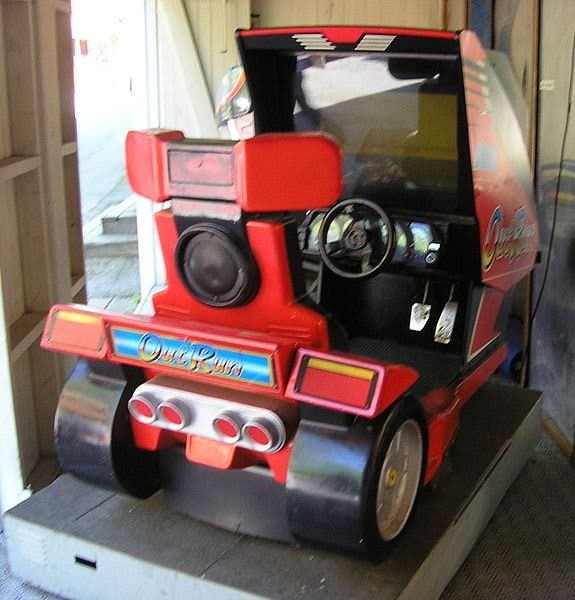Saturday Soapbox: The Arcade Fire Dies
Martin laments the decline of the UK arcade.
The death of the arcade - like the infuriating and thankfully now mute line about the death of the PC - is one of those statements that have become worn down, over-repeated and often exaggerated. But these days it's impossible to deny the stark truth within.
The past few months have seen two stories pass in silence, final nails hammered quietly into the coffin of this once vibrant scene. First, the Trocadero's Funland - once an anonymous arcade before being rebranded Segaworld, but a thriving arcade whatever its name - closed its doors, a long-running dispute with its landlords seeing the lights turned out this past July.
And then this month one of the relationships that was once at the backbone of arcade gaming is severed as Yu Suzuki officially leaves SEGA, departing to work full-time with his own company YS NET.
It's another downward twist in an arc that's been as limp as it has been inevitable, and it's worth taking the time to mourn the loss of an arena that was once so vital to games, and one that helped form the foundations of much of what we love today.

It used to be that if you wanted a glimpse of the future, you went to the local arcade. For a child obsessed with the world of video games, a trip there was like a mini-E3, a digital World's Fair wherein you'd see technologies unimaginable and spectacles impossible for our then-humble home consoles to replicate.
It's likely that anyone who grew up in or around London in the nineties has a story to share about a trip to the Trocadero's arcade. A personal favourite comes from visiting when Daytona USA had just been installed, cockily jumping the queue and sitting in one of the eight gloriously oversized cabinets as camera bulbs flashed around me - I felt, fleetingly, like Dale Earnhardt trapped in toy town.
Here it was possible to come face to face with polygons and the then brave new world of 3D, to marvel at the wizardry that conjured up these surreal landscapes to race around and to gawp at the artistry and bravado of these garish machines.
And of course Yu Suzuki's own games were synonymous with a certain golden age. Picture an arcade in its pomp and it's easy to imagine a line-up of Suzuki's career highlights: the gleaming red hulk of a deluxe OutRun cabinet, or the gyroscopic joy of a deluxe Afterburner all the way through to a spinning R360 or the full-spec three-screen F355 Challenge.

